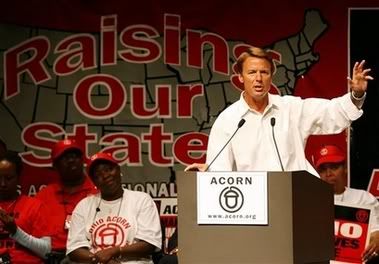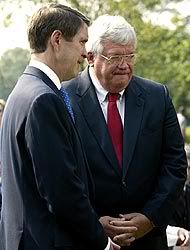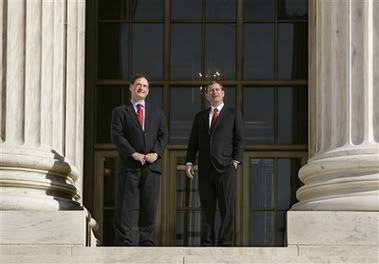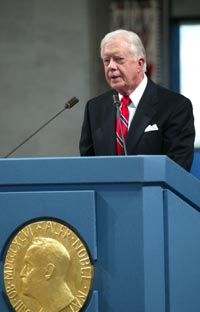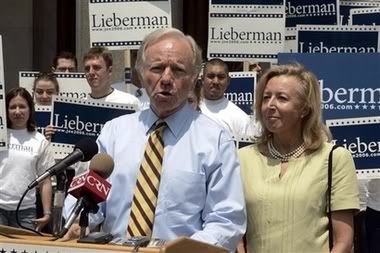(cross-posted at Deny My Freedom and Daily Kos)

I’m the decider, bitches
I guess it shouldn’t come as any surprise to any of us that yet another foreign policy maneuver instigated early in this administration has led to another crisis. In Ron Suskind’s book about Paul O’Neill and his short tenure within the Bush White House, it was revealed that the administration had its eye on invading Iraq long before September 11 had occurred. While such a proposition is commonly accepted wisdom among those not drinking the Kool-Aid, another, more worrisome foreign policy move occurred at the beginning of the Bush administration. During Bill Clinton’s administration, there was a concerted move to taking steps to normalizing relations with North Korea, a country long isolated because of its communist government and hostile posturing towards its southern neighbor. Part of the agreement was to give North Korea two power-producing nuclear reactors that would be monitored in exchange for North Korea abandoning its nuclear weapons program. While there were some bumps, there was progress being made.
However, that all changed when Bush entered office. The bilateral talks that were being held were cut off, and Bush’s antagonistic stance towards North Korea even angered the South, who we were ostensibly “protecting”:
“We strongly denounce the visit of U.S. Deputy Secretary of State Armitage, messenger of death, and we urge the Bush administration to withdraw the defense missile project immediately,” said Mun Jeong-Hyun, a civic group leader.
The demonstrators said joining Washington’s missile shield plan would threaten South Korea’s chance of reconciliation with the North.
This so-called ‘review of policy’ ran indefinitely until 2003, when the Bush administration backed down from its refusal to speak directly to North Korea. The fact is that the Bush administration really had no choice; they had failed to come up with any sort of alternative proposal to begin with:
Secretary of State Powell had said the new Administration would continue the Clinton policy, but when President Bush met President Kim, he put the kibosh on South Korea’s hopes, warning that North Korea could not be trusted to keep its agreements. Bush’s remarks were viewed as a slap-down of the South Korean president’s “Sunshine” policy of engagement with the North, which infuriated Seoul and saw Pyongyang respond by chilling relations with the South.
It also created a policy vacuum in Washington. Although the Administration had plenty of reason to doubt North Korea’s compliance and to demand stronger verification principles in the 1994 agreement, modification of the agreement through dialogue was not prioritized. The Bush Administration said its North Korea policy was under review.
This should’ve been the clearest indication to the media that the Bush administration had no fucking clue what to do after invading Iraq – they couldn’t even figure out what to do after shutting down talks with North Korea, like a spoiled child taking their ball home after getting tired of sharing. Even so, the Bush administration continued insisting on multilateral talks instead of the previous bilateral meetings, refusing to deal with the problem that it was largely responsible for creating. Eventually, North Korea gave in, and the talks dragged on slowly. Meanwhile, it was revealed that we had deceived our allies again in trying to make our case against the ‘bad guys’:
In an effort to increase pressure on North Korea, the Bush administration told its Asian allies in briefings earlier this year that Pyongyang had exported nuclear material to Libya. That was a significant new charge, the first allegation that North Korea was helping to create a new nuclear weapons state.
But that is not what U.S. intelligence reported, according to two officials with detailed knowledge of the transaction. North Korea, according to the intelligence, had supplied uranium hexafluoride — which can be enriched to weapons-grade uranium — to Pakistan. It was Pakistan, a key U.S. ally with its own nuclear arsenal, that sold the material to Libya. The U.S. government had no evidence, the officials said, that North Korea knew of the second transaction.
Pakistan’s role as both the buyer and the seller was concealed to cover up the part played by Washington’s partner in the hunt for al Qaeda leaders, according to the officials, who discussed the issue on the condition of anonymity. In addition, a North Korea-Pakistan transfer would not have been news to the U.S. allies, which have known of such transfers for years and viewed them as a business matter between sovereign states.
Despite the stop-and-start nature that the six-party talks entailed – brought on by the intransigence of both the U.S. and North Korea – an agreement was eventually reached in September 2005. However, the main sticking point of contention – similar to the situation in Iran – was that of using nuclear power for peaceful purposes.
The US wants the North Koreans to give up not just their weapons-orientated nuclear programme but the possibility in perpetuity of using nuclear power to generate electricity. The North Koreans have demanded a light-water reactor to produce electricity as a reward for giving up nuclear weapons, a demand that the US has rejected. The US also wants to include in the talks discussions on their allegations that North Korea is engaging in counterfeiting US currency and the illegal weapons trade, and perpetrating human-rights abuses. Many people in Washington would also like regime change in Pyongyang. Moreover, the framers of these demands want all this (well, maybe not the regime change) before any aid or development support is provided to North Korea.
It’s particularly ironic that the Bush administration once again called for ‘regime change’ in North Korea, even though it willingly does business with a country like Pakistan, where the father of its nuclear bomb gave centrifuges to North Korea. There may be an ‘axis of evil’, but one thing becomes abundantly clear – Iraq does not seem to be a part of it, and one of our biggest allies on the ‘war on terror’ seems to be a central player to the escalation of North Korea’s military capabilities.
After North Korea has fired several missiles in the past few days, including a failed attempt at launching a long-range missile, Bush is now running to the UN to get a condemnation of North Korea. While this is justified, it’s worth noting that there was no such display of ‘internationalism’ on the issue of Iraq. In fact, if one traces the timeline of the North Korea debacle, we have never wanted to address the issue head-on; it’s been something that we felt we should let China, Russia, or other regional players to deal with. As the world’s only superpower, we have a moral obligation to ensure that we are honest in our foreign policy dealings. Today’s press conference featured a frequent, oft-broken promise from Bush:
“One thing we have learned is that the rocket didn’t stay up very long and tumbled into the sea, which doesn’t, frankly, diminish my desire to solve this problem,” Bush said.
He used to say the same thing Osama bin Laden as well. The dealings with Iran have been eerily similar: we’ve offered incentives to stop their own nuclear enrichment in exchange for the use of ones for power, but both sides seem to be moving apart as the July 12 ‘deadline’ appears. By going into Iraq, we have essentially limited the leverage that we can hold over other countries because we’ve become so unpopular. Essentially, everything is a huge clusterfuck, thanks to “The Decider” and his administration.
So what will the right wing do? When all else fails, I’m sure you’ll begin hearing a lot more about how it’s all Bill Clinton’s fault – and that’s from three years ago. They never fail to displace the blame from the source of the problem – themselves.
























